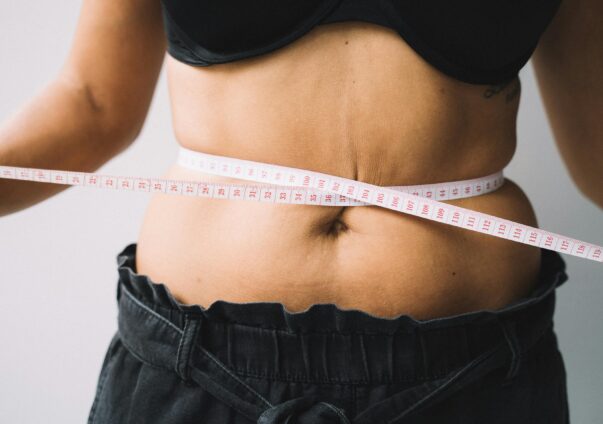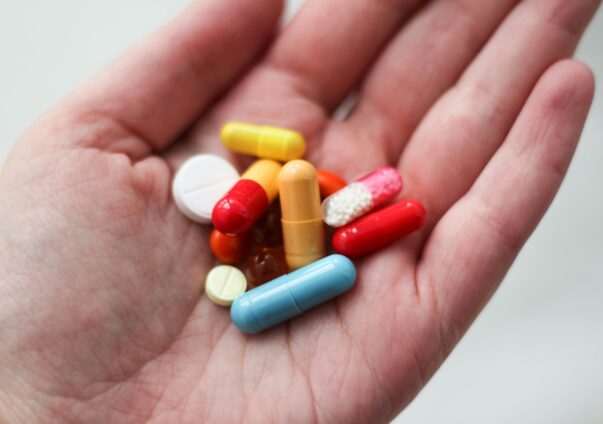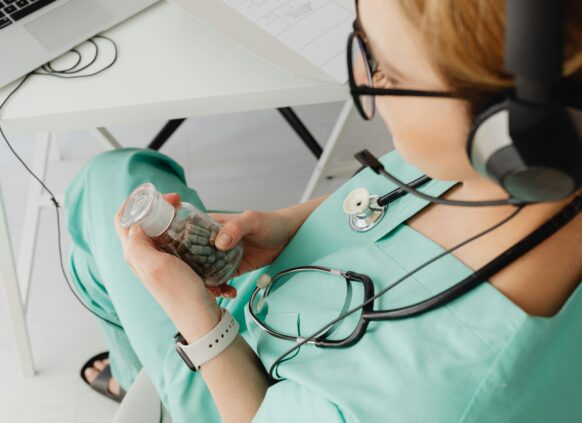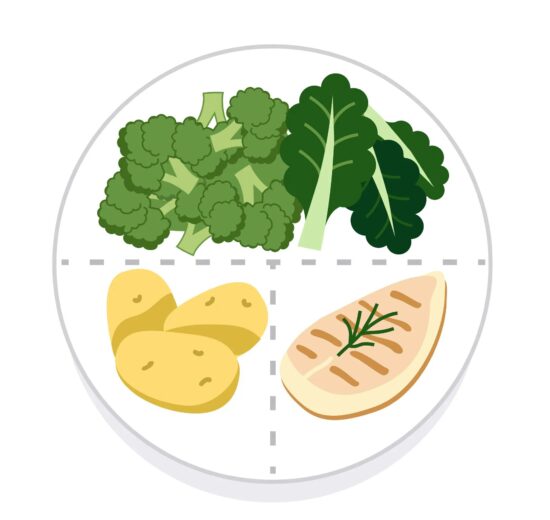
Buying “fat-burning” diet pills online? Read this first
Thinking about buying weight loss pills online? It’s important to be cautious – many are unregulated, unproven, and can cause serious harm, even death. Before buying pills online that claim to “burn fat”, it’s worth understanding the risks and the science behind them.
If you’re looking for safe, effective ways to manage your weight, there’s a better option. Oviva offers NHS-trusted support, combining evidence-based nutrition advice with expert care – and, if appropriate, access to prescription weight loss injections.
Key Takeaways
- Not all diet pills are safe. Many over-the-counter or online products are unregulated, ineffective, and may be harmful or life-threatening.
- Prescription weight loss medications are clinically proven – but should only be used under medical supervision if you meet the eligibility criteria.
- Sustainable lifestyle changes are often more effective than relying on quick-fix tablets or ‘fat burners’.
- Oviva is an NHS provider that offers access to safe, prescription weight loss medication – alongside personalised, long-term care.
What are “fat-burning” diet pills?
“Diet pills” is a catch-all term used to describe pills that claim to offer weight loss or fat-burning benefits. They generally fall into three categories:
Over-the-counter supplements
Natural or synthetic dietary supplements or herbal remedies, which include claims of weight loss benefits. Common ingredients include green tea extract, chitosan, chromium supplements and conjugated linoleic acid.
Examples of over-the-counter diet pills include:
- Appetite suppressants: tablets sold as having the ability to make you feel less hungry
- Detox supplements: supplements intended to remove toxins from the body
- Laxatives: pills or teas that stimulate bowel movements to create the illusion of weight loss
Dietary supplements bought over-the-counter are regulated, but mainly in accordance with food law. They don’t have to have proven effectiveness as diet pills through clinical trials.
Some detox supplements, like activated charcoal and clay products, may even interfere with the body’s ability to absorb vitamins and minerals.
Laxative-based products can lead to short-term water loss – not fat loss. Overuse can cause dehydration, electrolyte imbalances, and long-term digestive issues.

Fat burners
Diet pills designed to aid weight loss by speeding up your metabolism, preventing fat from accumulating, or helping the breakdown of fat in the body. They are classed as dietary supplements rather than medication. Common ingredients in fat burners include L-carnitine, caffeine and capsaicin.
Online diet tablets are unregulated, and the Medicines and Healthcare products Regulatory Agency (MHRA) regularly steps in to seize products containing banned or harmful ingredients.
Prescription medications
Drugs or treatments in pill form, which have proven and established effectiveness for weight loss and have also been classed as safe for patients who receive a prescription.
An example would be orlistat (sometimes marketed as Xenical), which can be prescribed by the NHS if you meet the eligibility criteria. It works by reducing the amount of fat your body absorbs from food. As a result, more fat leaves your body again through your digestive system.
Other proven weight loss medications are also available as injections, like Wegovy and Mounjaro. They are prescription medications to be taken with medical supervision.
Buying diet pills is dangerous, and you should also avoid buying Wegovy online and buying Mounjaro online, as there is no way to guarantee the products will be authentic and free from hazardous ingredients

Risks of buying diet pills online
Buying diet pills online can be risky – and in some cases, life-threatening. The online market for these pills isn’t effectively regulated.
Unknown ingredients
Without proper regulation, there’s no way to be sure what a product actually contains. Some pills sold online have been found to include banned substances that pose serious health risks – even when marketed as “herbal” or “natural”.
Examples of ingredients found in diet supplements in the UK include:
- DMAA (methylhexanamine) – linked to strokes, heart problems and even death; banned in several countries
- Sibutramine – banned in the UK due to its association with heart attacks and strokes
In one MHRA raid, 23,000 diet pills were seized. The tablets were marketed as “herbal” and “natural” but all contained sibutramine, which can increase the risk of heart attacks
Real-life risks
The UK government shared the story of a woman who, after buying diet pills online with good reviews, began experiencing heart palpitations, nausea, IBS-like symptoms, and even fainting.
She believed she was making a safe choice – but the pills weren’t what they seemed.
Lack of quality control
Unlike prescription medications, most diet pills sold online aren’t subject to strict safety or manufacturing regulations. That means there’s no guarantee they’ve been produced in safe conditions or tested for quality.
Without proper oversight, some pills may contain:
- Incorrect dosages
- Low-quality ingredients
- Little or none of the active ingredients listed
This lack of quality control can make the pills ineffective – or unsafe.

Dangerous side effects
The risks aren’t just about wasting your money – they’re about protecting your health. Side effects from unregulated pills can include:
- Heart palpitations
- High blood pressure
- Psychosis
- Organ failure
- Cardiac arrest
- Stroke
- Death
In 2015, a 21-year-old woman died after taking eight diet pills containing dinitrophenol (DNP) – a toxic chemical that can cause fatal side effects, including multiple organ failure and cardiac arrest. The online seller was later convicted of gross negligence manslaughter.
Do online weight loss pills work?
Online weight loss pills
As the market is unregulated, these pills should be considered unsafe, unless bought from a registered pharmacy
Even if they did offer some weight loss results, they may contain toxic or banned ingredients that can cause more harm than good.
Verdict: It’s unlikely they work and it’s not worth the risk

Over-the-counter pills
Many are ineffective, may cause side effects, and aren’t recommended for sustainable weight loss.
These are regulated under food law, not medicine – meaning they don’t need to prove effectiveness.
Verdict: It’s unlikely they work and it’s not worth the risk
Prescription weight loss tablets
Medications like orlistat have proven clinical results.
One study found people living with obesity lost 10.2% of body weight after a year of taking orlistat, compared to 6.1% on a placebo.
These treatments must be prescribed and monitored by a healthcare professional to ensure safety.
Verdict: Yes, they work. But they should only be used as a medical treatment prescribed by a healthcare professional.

Are natural weight loss supplements effective?
The evidence for natural weight loss supplements is mixed.
According to the NIH Office of Dietary Supplements, most have either:
- Poor-quality studies backing them, or
- No meaningful evidence of effectiveness at all.
That said, a few supplements show modest effects in some studies:
- Caffeine and green coffee extract have been linked to slight weight loss, but both may cause unwanted side effects like jitteriness, increased heart rate or digestive discomfort.
It’s also possible that:
- Some reported effects are due to the placebo effect.
Others may work through harmful mechanisms that aren’t sustainable or safe.
What to do instead of buying online weight loss pills
Given the risks associated with many weight loss pills, it’s recommended to explore alternatives. The best approach for most people will involve making sustainable changes to your lifestyle, including building healthy weight loss habits based on diet and exercise.

Diet
Aim for a balanced, nutrient-rich diet.
- Fill your plate with ½ vegetables, ¼ whole grains or starchy carbs and ¼ lean protein
- Focus on lean protein and fibre to help reduce hunger and support nutrition.
- Limit processed foods and sugary drinks.
- Small, consistent swaps – like choosing wholegrain bread or zero-sugar soft drinks – can make a big difference over time.
Try our seven-day healthy diet plan to get you started.
Exercise
Start with what’s manageable.
- Take the stairs instead of the lift
- Try adding a walk into your daily routine – you can build up the time spent walking daily or weekly
- Find everyday ways to be more active – even housework counts!
- Work towards the NHS-recommended 150 hours of moderate exercise each week.

Stress management
If you’re feeling overwhelmed, you’re not alone. When life’s busy or heavy, health habits can feel like just another thing to manage.
- Start small. A short walk, five quiet minutes, or something you enjoy can make a difference. Try to do something just for you daily.
If you’re struggling with sleep, try:
- No screen time within 30 to 15 minutes before bed
Creating a wind-down routine that works for you, whether that’s a herbal tea, a calming podcast, a few pages of a book or dimming the lights
Professional support
Struggling to lose weight despite your best efforts? You’re not alone – and you don’t have to figure it out on your own.
Instead of turning to quick fixes or self-medication, speak to your GP about your options. You may be eligible for a weight management programme from an NHS provider like Oviva, which offers personalised, sustainable support.

How Oviva can help you lose weight – and keep it off
Looking for something that actually works – and lasts? Oviva’s NHS-funded weight loss programme is built around you.
No strict diets. No calorie counting. Just expert support to help you feel better, healthier, and more in control.
You may be eligible if you’re in England with a BMI 35+ and you’re living with a weight-related health condition.
With Oviva, you’ll get:
- Prescription weight loss injections like Wegovy delivered to your door, if appropriate
- Tailored support from doctors, dietitians and health coaches
- Practical tools and progress tracking via the easy-to-use Oviva app
97% of users would recommend us – and the average weight loss is 13.6 kg in the first year.



